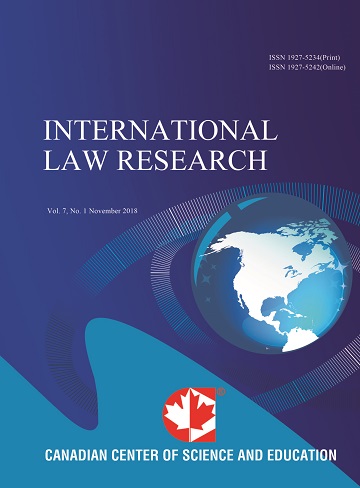Prosecutorial Discretion at the Special Court for Sierra Leone: A Critique
- Ishmail Pamsm-Conteh
Abstract
Principle 1 of the International Law Commission demands that any person who commits an act which constitutes a crime under international law is responsible and therefore liable to punishment. This is supported by various other international treaties, obligations, and also under customary international law. The mandate of the Special Court for Sierra Leone (The Special Court) rests with United Nations Security Council Resolution 1315(2000); to prosecute those who bear the greatest responsibility for serious international crimes committed during the country’s civil war, which lasted from 1991-2002. To be clear, there were many protagonists in the conflict. However, the Special Court, which lasted between 2002 and 2012, prosecuted only thirteen members from selected groups, who were alleged to have committed such offences. Although there was considerable evidence to have supported additional prosecutions from the other warring factions in the conflict. As it was the responsibility of the Prosecutor to select those who were to be prosecuted; was the prosecutorial discretion robust enough in the case selection of those that were prosecuted, or was it a case of selective enforcement, or was it even discriminatory whilst trying to achieve the Court’s mandate? This paper aims to evaluate the exercise of prosecutorial discretion at the Special Court, with a view to determining, whether the manner in which it was exercised may have led to the Prosecutor underachieving the Court’s mandate.
- Full Text:
 PDF
PDF
- DOI:10.5539/ilr.v10n1p249
Journal Metrics
h-index (2017): 2
i10-index (2017): 0
h5-index (2017): N/A
h5-median (2017): N/A
Index
- CNKI Scholar
- COPAC
- CrossRef
- DTU Library
- EuroPub Database
- Excellence in Research for Australia (ERA)
- Ghent University Library
- Google Scholar
- Harvard Library
- Infotrieve
- Jisc Library Hub Discover
- LOCKSS
- Open J-Gate
- PKP Open Archives Harvester
- Publons
- ROAD
- Scilit
- SHERPA/RoMEO
- Stanford Libraries
- Ulrich's
- UniCat
- Universe Digital Library
- UoS Library
- WorldCat
Contact
- Joseph TaiEditorial Assistant
- ilr@ccsenet.org
